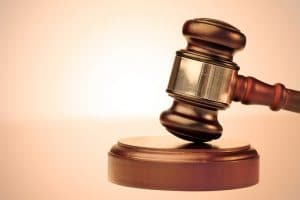Double jeopardy is a constitutional principle that protects you from being tried or punished more than ones for the same crime.
For many Americans, the concept of double jeopardy is a murky one — something that they might have seen on a television show or a movie, but one that might be hard to understand. This principle is fundamental to our legal system, yet it does not apply in every situation. Read on to learn more about double jeopardy from a criminal defense attorney in Riverside, CA.
First, it is important to know what double jeopardy is: it is part of the Fifth Amendment of the U.S. Constitution, and it guarantees that no person can be prosecuted after being acquitted for the same crime, convicted twice for the same crime, or punished more than once for the same crime. California has adopted the double jeopardy clause into state law.
But knowing what the double jeopardy clause is does not necessarily help you understand when it can be used. You can only claim double jeopardy in certain instances. This is when it lawyers say that “jeopardy attaches.” Once jeopardy attaches to a criminal proceeding, then the government cannot prosecute a defendant again for the same crime. In a criminal case, jeopardy attaches once:
- The jury selection is completed or the jury is sworn in;
- Witnesses are sworn in;
- Mistrial without the defendant’s consent;
- Jury is discharged without the defendant’s consent (unless there is a legal necessity, such as a hung jury);
- Acquittal;
- Dismissals;
- Where the defendant becomes witness for the prosecution;
- Dismissal of the charges in a misdemeanor case;
- Second dismissal of a felony;
- Convictions;
- Plea deals;
- Retrial after appeal and reversal; and
- Necessarily included offenses (if a crime should have been included with the ofirinal charged offense).
However, double jeopardy does not always apply. For example, double jeopardy is a concept that only applies in criminal prosecutions. If a case is brought in civil court, that will not prevent a similar case from later being brought in criminal court. An example of this would be in the BilL Cosby case; at least one of his accusers brought a civil action against him in the past for allegedly drugging and raping her. Double jeopardy did not prevent the prosecutor from seeking criminal charges against Cosby for this alleged sexual assault. It also does not apply to prison disciplinary proceedings, parole or probation revocation proceedings, and other non-criminal proceedings, such as administrative hearings before the Department of Motor Vehicles in DUI cases.
Double jeopardy also does not attach until after a criminal trial starts, so it will not apply to pre-trial proceedings in a criminal case. If a jury is hung (cannot agree on a verdict) in a criminal case, double jeopardy will not prevent the prosecutor from retrying the defendant on those charges. It also will not prevent federal and state prosecutors from trying a defendant for the same criminal conduct.
Double jeopardy can be a complex concept. A skilled criminal defense attorney in Riverside, CA can help you understand if it may apply in your case. Contact the Chambers Law Firm today at 714-760-4088 or dchambers@clfca.com if you have been charged with a crime and are in need of aggressive representation. Initial consultations are always free.





